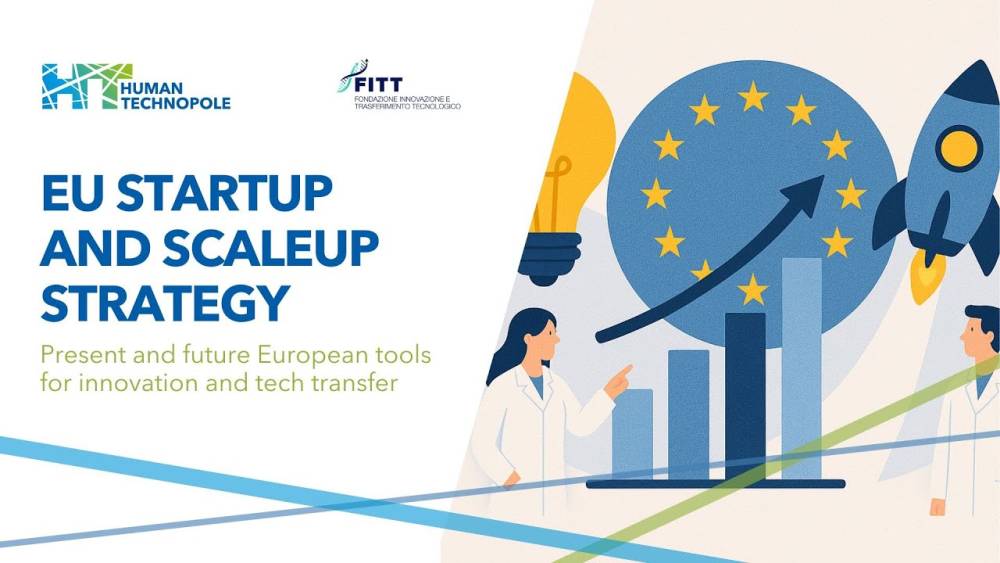Did you know the EU appointed a Commissioner for Startups — and dropped its first real startup strategy recently? Maybe not. Maybe you tuned out because, honestly, for years founders have built global companies despite the prevailing operating environment, not because of it.
But here’s the deal: Brussels is making an unprecedented attempt to make it easier for companies scaling in Europe.
The problem is the promise of this strategy will only become a reality if founders start paying attention.
What the EU's startup and scaleup strategy gets right
The
EU’s Startup and Scaleup Strategy aims to “make Europe the best place to launch and grow global tech companies”. The plan focuses on five areas — regulation, funding, market access, talent and infrastructure.
And there are real reasons to be optimistic.
This strategy sends a clear political statement, openly acknowledging that startups are key to Europe’s competitiveness. It diagnoses the most persistent structural issues founders face — like fragmented markets, undue regulatory and bureaucractic burdens, and hard-to-access public and corporate procurement — and offers some of the policy changes the ecosystem has long awaited (the
28th regime tops the list, but other wins include pro-startup procurement reforms, insolvency tweaks, stock option improvements and support for international talent mobility).
It also marks a promising shift toward deeper structural engagement with the startup community — including via the new Startup Scaleup Forum, an advisory group of ecosystem voices (including the authors of this piece).
What needs to happen next
To maximise the impact of this approach, some important issues still need to be tackled.
Ruthless prioritisation. The strategy is full of ideas — more than 25, in fact — but doesn’t clearly signal which are mission-critical. The 28th regime — a major proposal from the ecosystem to create a single set of rules for innovative businesses across the EU, regardless of where they are based — receives the same attention as a suggested study on corporate restructuring. It also proposes a number of actions to complement the Savings and Investment Union — a parallel strategy which hopes to transform Europe’s vast savings and institutional capital base into innovation-focused, growth capital which could better fund startups and scaleups, improve public market capital depth and liquidity, and generally create capital market conditions that allow tech champions to thrive and stay in Europe. If we could deliver just three high-impact measures (our pick: a real 28th regime, a Savings and Investment Union, and pro-startup procurement reform) but do them well and quickly — that alone could transform the European tech ecosystem.
What ‘Great’ looks like. Though ambitious, the strategy is still vague on what ‘great’ actually means, with success defined by a limited set of metrics — more startups, more centaurs, more unicorns — to be tracked by a new ‘European Startup and Scaleup Scoreboard’. To measure what matters, we need clarity on the end-state we’re working toward, and this should be shaped by the voices of founders — possible if we get the Scoreboard right. If ‘great’ means Europe excels at turning ideas into outcomes, let’s make sure it tracks global share of exit value.
Execution. The EU needs to show it has the focus, operational muscle and speed to deliver. Past efforts didn’t lack ideas (remember the 2016 Startup and Scaleup Initiative?); they failed to follow through. The taskforce leading implementation has just three full-time staff, none with startup experience. By contrast, France has a dedicated 30-person team focused on startups at the national level alone (many ex-founders/operators).
No engagement, no impact
This is a landmark strategy. But it’s not making the noise it should. That’s a problem because the real power of this lies in rebuilding trust between the EU and its startup ecosystem, and sending a strong signal, not just to policymakers, but to the market.
Neither will happen if those with the most skin in the game stay silent — risking this strategy (a ‘Communication’: EU-speak for non-binding policy) falling flat without backing from Parliament or member states, collapsing in execution.
So, if you want this strategy to mean something, you need to get loud. Here’s how:
Like most other people in this ecosystem, policymakers are active on LinkedIn (and other social platforms) — and pay attention to what people say there. Start, and join, public dialogues with commissioners Ekaterina Zaharieva, Michael McGrath and Maria Luís Albuquerque, and executive vice presidents Stéphane Séjourné and Henna Virkkunen. Tag them. Comment. Make some noise. Get involved with founder collectives that do the same. Track open consultations and push your MEPs on key legislation: the 28th Regime, EU Innovation Act and Savings & Investment Union.
Europe has a limited window to define its role in the future of tech. Let’s not miss this opportunity to shape the environment we want to build in, because if we don’t, others will shape it for us.
https://op.europa.eu/en/web/eu-law-and-publications/publication-detail/-/publication/86a3cca9-4023-11f0-b9f2-01aa75ed71a1/language-en
https://sifted.eu/articles/europe-startup-plan




